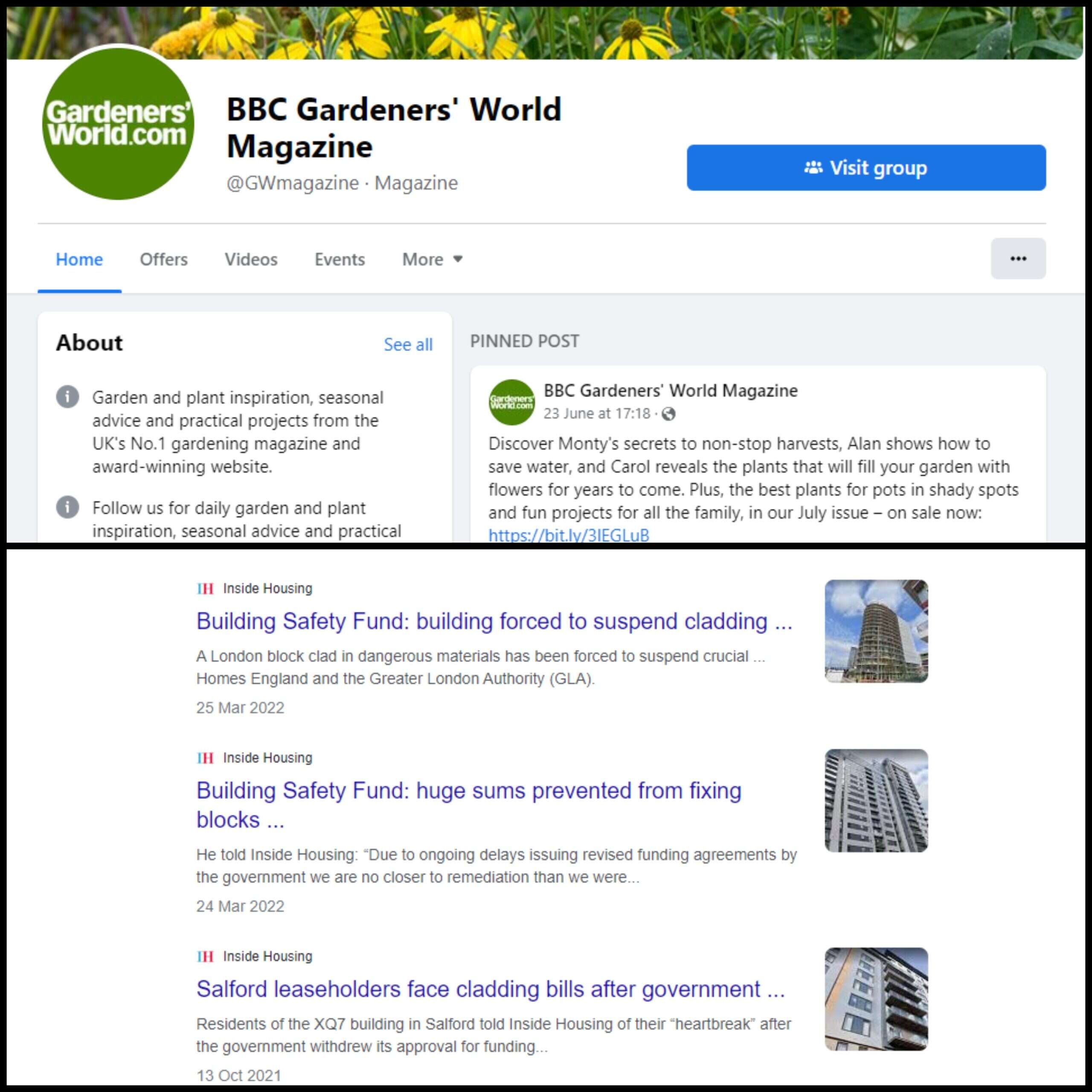
Specialist media titles like Inside Housing and Grazia risk having their content taken down by tech platforms after failing to secure an opt-out from the Online Safety Bill.
The draft law compels tech platforms like Google and Facebook to remove harmful content, but includes protection for bona fide news publishers.
However the definition of a news publisher used by the government means a title such as Inside Housing, which won awards for its investigation into the causes of the Grenfell fire, would not have the protection given to titles such as The Sun and Mail Online.
The Online Safety Bill, which has now entered the Commons report stage of Parliament, exempts “recognised news publishers” from fines over any potentially harmful content and states that tech platforms like Google and Facebook should not remove their content.
It is specifically news-related material which is exempt, defined in the bill as “news or information about current affairs, opinion about matters relating to the news or current affairs, or gossip about celebrities, other public figures or other persons in the news”. As part of the definition of “recognised news publishers” in the same clause they must be subject to a standards code and have complaints-handlings procedures, as required by IPSO.
The definition of news-related material is replicated from the Crime and Courts Act 2013. The Government has pledged to repeal the controversial Section 40 of this act, which would force news publishers to pay both sides’ legal costs in defamation and privacy legal cases no matter their outcome, unless they are members of a Royal Charter compliant regulator such as Impress.
The PPA fears that using this definition in the Online Safety Bill excludes specialist publishers’ titles, even those independently regulated by IPSO, and could “have a long-lasting damaging effect on an indispensable element of the UK’s media ecosystem”.
The organisation said that leaving IPSO-regulated publications out of the protections would create an “inferior ‘tier’ of independently regulated publications” undermining the current system.
It called for “special interest news material” to be added to the definition to exempt “specialist publishers focusing on interests or industries (often including current affairs information)”.
Although fears remain that platforms will over-cautiously take down news publishers’ material and reinstate on appeal – often too late in a fast-paced news cycle – the PPA said specialist media should benefit from the same enhanced protections as recognised news publishers.
In a briefing for MPs, the PPA said: “Specialist publishers are in danger of being penalised by virtue of their expert focuses, which is in fact a key element in garnering citizens’ trust in journalism.” It also noted that the platforms often include specialist media in their own definitions of journalism: for example, Google News Showcase is open to all publishers as long as they meet its content policies.”
The PPA added that it should not end up being up to Google and Facebook to decide what counts as protected journalism.
“…independently regulated UK publishers should not be left at the mercy of the tech giants (particularly as platforms are likely to rely on imprecise algorithms),” it told MPs. “A situation could arise whereby independently regulated specialist publishers would be wary to publish online what would be perfectly safe to publish in print.”
However DCMS minister Chris Philp rejected an attempt at the Public Bill Committee last month to insert an exemption for “special interest news material” which would have covered “material consisting of news or information about a particular pastime, hobby, trade, business, industry or profession”.
Philp said the exemption for publishers was to protect “freedom of the press and freedom of speech”, adding: “Clearly, that is most pertinent and relevant in the context of news, information and current affairs, which is the principal topic of the exemption.
“Were we to expand it to cover specialist magazines—he mentioned Gardeners’ World—I do not think that free speech would have the same currency when it comes to gardening as it would when people are discussing news, current affairs or public figures. The free speech argument that applies to newspapers, and to other people commenting on current affairs or public figures, does not apply in the same way to gardening and the like.”
He added that the wider the scope of the exemption, “the greater the risk of bad actors exploiting” it.
A PPA spokesperson told Press Gazette: “Independently regulated specialist publishers offer a wide range of public interest journalism on a wide range of topics, yet are at risk of being penalised in the Online Safety Bill precisely because of their expert focus on key sectors and interests.
“The dissemination of content online is seeing more and more UK citizens to seek out sources of news and information that speak to very specific interests – this means that a failure to protect specialist publishers in the bill will make the press and media protections progressively less effective over time.”
Picture: Press Gazette.
Email pged@pressgazette.co.uk to point out mistakes, provide story tips or send in a letter for publication on our "Letters Page" blog
